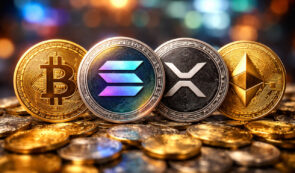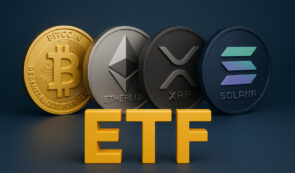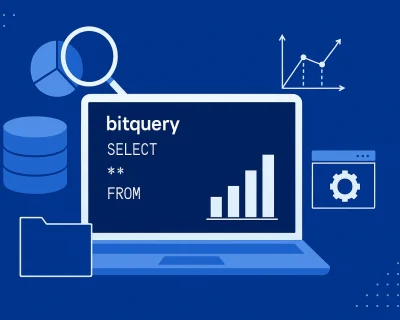6 Reasons Why Polygon Is A Blockchain to Watch in 2023
Polygon (formerly Matic Network) has recently started witnessing growth that no competitor could ever dream of. Late in 2022, most crypto-related headlines were about Polygon and its native token, MATIC.
Is 2023 any different? Absolutely not, and this is why it is important to try and see through it and understand the reasons behind such a great pace of adoption.
Also known as Matic (for its token), Polygon is an Ethereum scaling solution and easy-to-use platform that provides a modular and flexible framework for all kinds of decentralized applications (dApps). And as a layer 2 scaling solution for Ethereum, Polygon supplies the (dApps) with fast and cheap transactions, giving a boost to decentralized finance (DeFi) projects.
What’s most intriguing about Polygon is that the MATIC token hardly ever surfaced above $0.03 in 2021, but then, the coin’s growth became a true, real-life representation of ‘to the moon slogans.
With this in mind, let’s look into this wonder of a cryptocurrency and delve into the benefits that make Polygon one of a kind!
Main Attributes of Polygon (MATIC)
Polygon developers and their community made all the right choices to secure a successful future for the network. They decided to solve the problem of the high costs of building and running dapps on and for the Ethereum blockchain. But this is not all. With this came more benefits and differentiating factors that set Polygon apart and made crypto enthusiasts and investors rush to buy MATIC. Here are the main attributes of the Polygon platform:
- Compatibility with Ethereum: Polygon is fully compatible with the Ethereum blockchain, allowing developers to easily migrate their dApps and smart contracts from Ethereum to Polygon.
- Scalability: Polygon uses a combination of layer 2 scaling solutions, such as plasma chains and optimistic rollups, to increase transaction throughput and reduce gas fees. This makes Polygon ideal for high-volume dApps and DeFi projects.
- Security: Polygon leverages Ethereum’s security guarantees and has its own security measures, such as a decentralized network of validators, to ensure the integrity of its network and the safety of users’ assets.
- Decentralization: Polygon operates as a decentralized network, with no central authority controlling it. This makes it resistant to censorship and provides users with greater control over their assets and transactions.
- Low transaction fees: Polygon’s layer 2 scaling solutions allow it to process transactions much faster and more efficiently than the Ethereum main net, resulting in lower gas fees for users.
- Community-driven development: Polygon is an open-source project with a strong and growing community of developers, validators, and users. The project is continuously evolving, with new features and improvements being added on a regular basis.
What Are Optimistic Rollups?
Optimistic rollups are Layer 2 scaling solutions. The main idea behind optimistic rollups is to move some of the computational load from the main Ethereum network to a separate layer 2 network, which can process transactions faster and more efficiently.
In an optimistic rollup, transactions are bundled into a “rollup” and processed on the layer 2 networks. The results of these transactions are then recorded back to the Ethereum mainnet in a single, compact transaction. This helps to reduce the burden on the main Ethereum network and enables faster and cheaper transactions.
Optimistic rollups are called “optimistic” because they allow for faster processing of transactions while maintaining a high level of security. This is because the Layer 2 network uses cryptographic proof to ensure the validity of its transactions, and the results are recorded back to the Ethereum mainnet in a single transaction. This means that in the unlikely event of an issue with the Layer 2 network, the Ethereum mainnet can be used to resolve it and ensure the security of users’ assets.
Overall, optimistic rollups are an important part of Polygon’s scaling solution and play a key role in enabling fast and cheap transactions for dApps and DeFi projects built on the network.
MATIC Token Explained
We have already learned that the Matic token (MATIC) is native to the Polygon network. It is available for trade (MATIC/USDT) on any leading crypto exchange such as Gate.io and serves several key roles in the ecosystem, such as:
- Governance: MATIC token holders have a say in the future direction of the Polygon network through a decentralized governance system. This allows the community to make decisions about the development and implementation of new features and improvements.
- Staking: MATIC tokens can be staked by users to participate in the Polygon network as a validator. Validators are responsible for securing the network by verifying transactions and maintaining its integrity. By staking MATIC tokens, users can earn rewards for their participation in the network. Some crypto exchanges, such as the Gate.io crypto exchange, also offer staking alternatives with the latest crypto prices, where you can simply lend MATIC tokens for a short period of time and earn interest on it.
- Gas fees: Gas fees on the Polygon network are paid in MATIC tokens. This helps to increase demand for the token and provides a source of revenue for the network.
- Liquidity: MATIC tokens can be used to provide liquidity to decentralized exchanges (DEXs) and other DeFi protocols built on the Polygon network. This helps to increase the use and value of the token.
Final Words
In conclusion, Polygon is a next-generation Ethereum sidechain that has real use cases in the medium of dApps and DeFi projects. With its layer 2 scaling solutions, decentralized network of validators, and community-driven development, Polygon is well-positioned to meet the growing demand for scalable blockchain infrastructure. And this just may be the perfect recipe for success.
Not a single crypto project can do without its thoroughbred, native coin. The Matic token (MATIC) plays a central role in the Polygon ecosystem, serving as a means of governance, a staking asset, a source of gas fees, and a liquidity provider. With all of this in mind, it would only be fair to say that Polygon is poised to become one of the leaders in the decentralized finance space, so make sure you watch this space.













